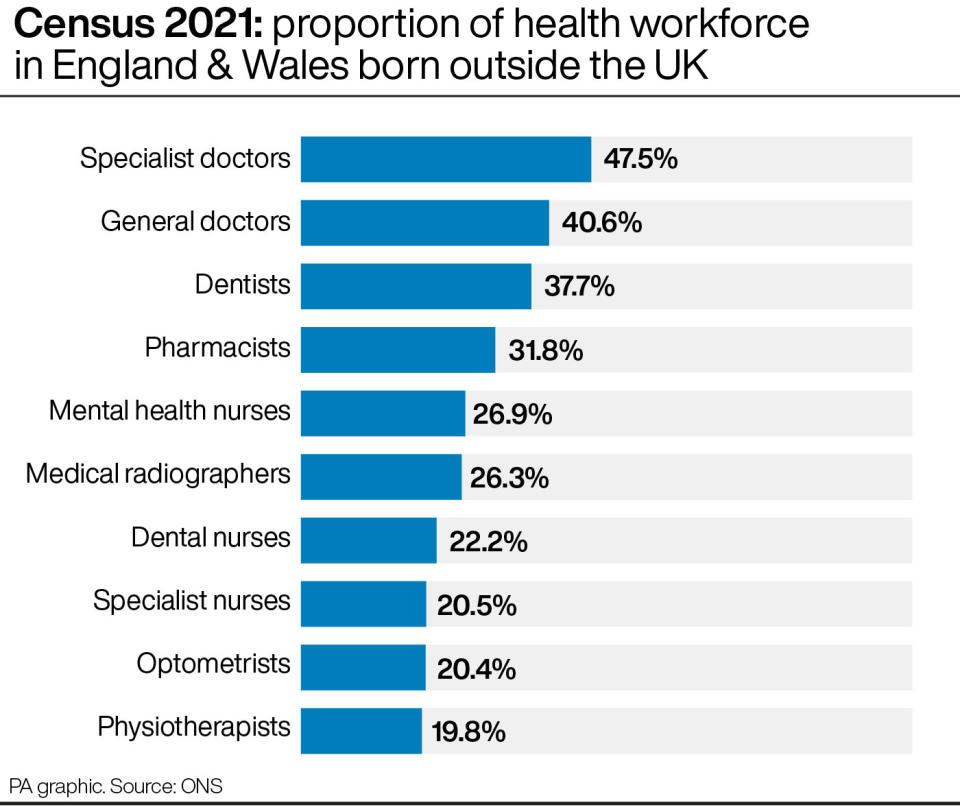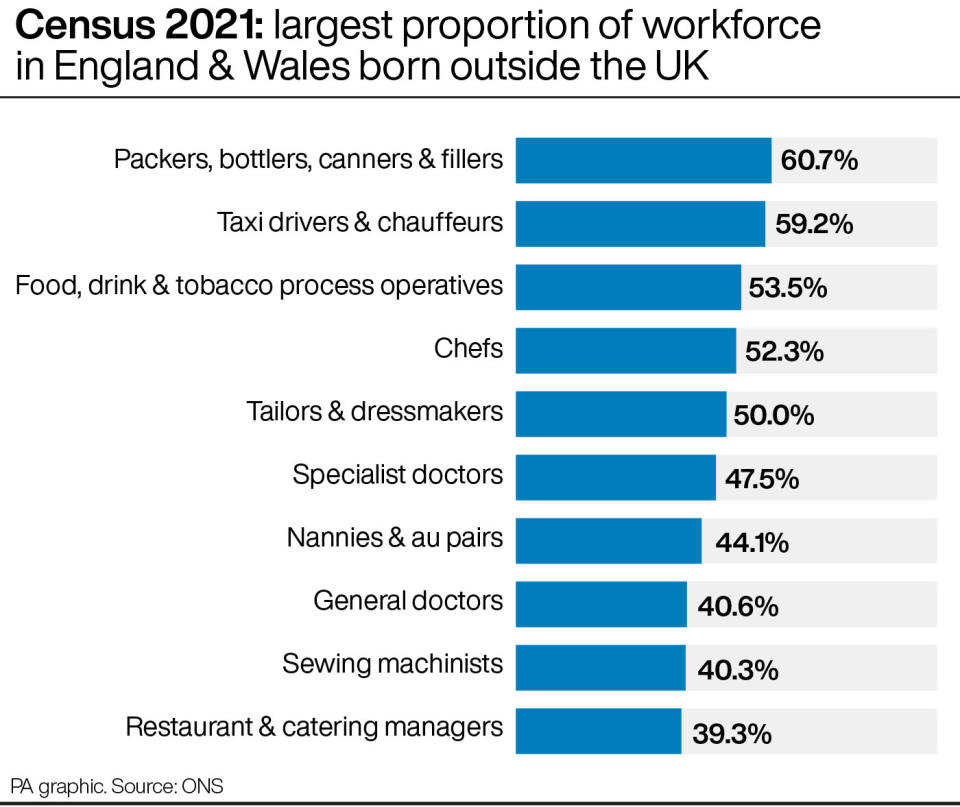Nearly half of specialist doctors in England and Wales born outside UK – census

Nearly half of all specialist doctors in England and Wales were born outside the UK, along with two in five GPs, census data shows.
Non-UK-born nationals also make up a quarter of care workers and one in five social workers.
The figures provide a fresh snapshot of the diversity of the health and care workforce, as well as highlighting how recruitment from across the world has shaped the modern-day NHS.
The census took place in England and Wales on March 21 2021 and the results are being published in stages by the Office for National Statistics (ONS).
The latest data focuses on nationality across the labour market and shows that almost half (47.5%) of specialist doctors in England and Wales, such as an oncologist or cardiologist, were born outside the UK.

People born in the Middle East and Asia accounted for the largest proportion of this group, at more than a quarter of all specialist doctors (26.3%), followed by Africa (8.5%) and the 14 countries who were members of the EU before its expansion in 2004 (6.3%).
Some two in five (40.6%) GPs in England and Wales were born outside the UK, with the Middle East and Asia again accounting for the largest proportion (21.8% of the total), then Africa (9.0%) and the EU14 (4.2%).
Non-UK-born nationals make up one in four (26.9%) mental health nurses and one in five (20.5%) specialist nurses, with slightly lower proportions for midwifery nurses (13.7%) and paramedics (9.1%).
Around a quarter (25.3%) of care workers and home carers were born outside the UK, along with nearly one in five (19.4%) social workers.
In both groups, African countries were the most common non-UK country of birth, accounting for 10.1% of the totals.
Across all those employed in human health and social work in England and Wales, nearly a quarter (22.9%) were born outside the UK, with the Middle East and Asia (7.5%) and Africa (6.4%) making the largest contributions to the total, the ONS found.
The new figures cover all occupations in England and Wales and also show that people working as packers, bottlers, canners and fillers at the time of the 2021 census had the largest non-UK-born workforce, at 60.7%.
This is followed by taxi drivers and chauffeurs (59.2%); food, drink and tobacco process operatives (53.5%); chefs (52.3%) and tailors and dressmakers (50.0%).
Among retail occupations, the percentage of the non-UK workforce varies from nearly a third of market and street traders and assistants (29.4%) to around one in 10 telephone salespersons (9.6%).
Around a quarter (24.6%) of retail cashiers and check-out operators were born outside the UK, slightly higher than the proportion of shopkeepers and owners (23.8%).

The occupation with the highest UK-born workforce is farmers, at 97.5%.
The next group is undertakers, mortuary and crematorium assistants (96.5%), followed by groundsmen and greenkeepers (95.8%), senior police officers (95.6%) and veterinary nurses (94.4%).
People born in the eight countries that joined the EU in 2004 (Czech Republic, Estonia, Hungary, Latvia, Lithuania, Poland, Slovakia and Slovenia) account for nearly a quarter (22.9%) of all food, drink and tobacco process operatives – the highest percentage for this group of countries.
The next highest percentages are for packers, bottlers, canners and fillers (22.5%) and fork-lift truck drivers (16.6%).
The highest proportion of people born in Bulgaria and Romania are in the categories of packers, bottlers, canners and fillers (12.9% of the workforce), vehicle valets and cleaners (12.1%) and food, drink and tobacco process operatives (9.5%).
For people born in the Middle East and Asia, the occupations with the highest representation are taxi drivers and chauffeurs (41.6% of the workforce), specialist doctors (26.3%) and IT quality and testing professionals (24.9%).
For people born in Africa, the top three are mental health nurses (20.2%), security guards and related occupations (12.9%) and pharmacists (10.2%).
All figures cover people aged 16 and over who were resident in England and Wales on the day of the 2021 census.

 Yahoo News
Yahoo News 
